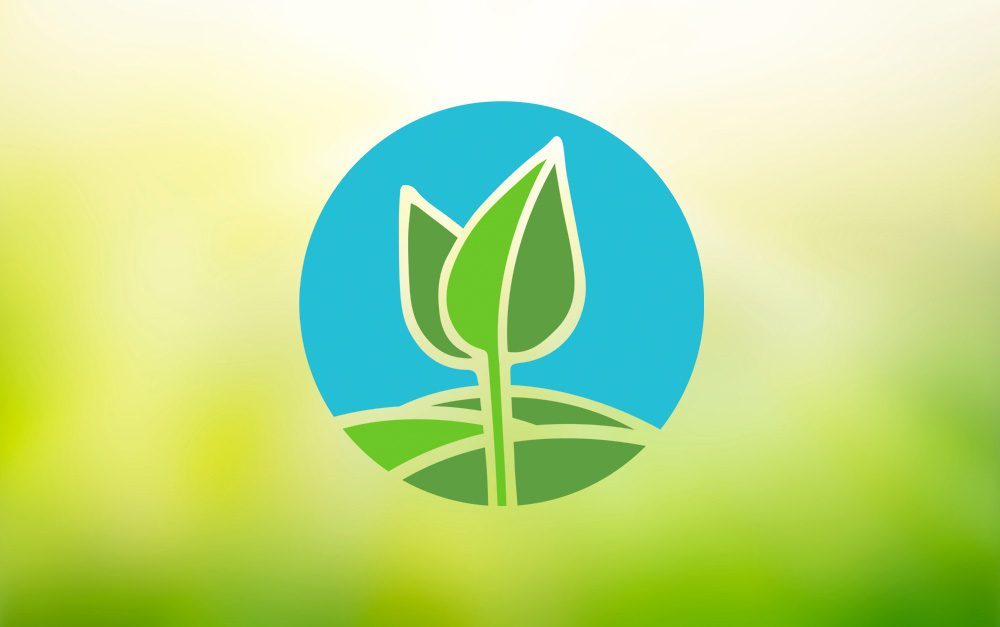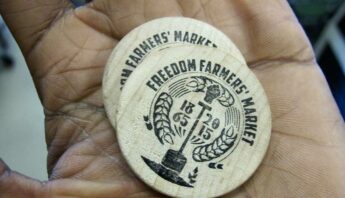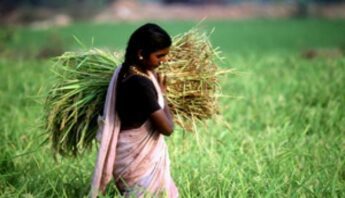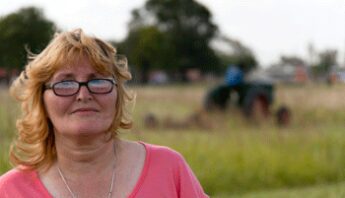Media Contacts:
Mariam Mayet, African Centre for Biosafety, South Africa + 27 83 269 4309, mariammayet@mweb.co.za
Carlos Vicente, GRAIN, Argentina carlos@grain.org
Gabriel Fernandes, AS-PTA, Brazil, gabriel@aspta.org.br
Elizabeth Bravo, Red por una América Latina Libre de Transgénicos, Ecuador, ebravo@rallt.org
Marcia Ishii-Eiteman, Pesticide Action Network North America, United States, mie@panna.org
March 20, 2013
SOUTH AFRICAN GOVERNMENT BLASTED OVER APPROVAL OF GE SOY
U.S., African, Latin American groups call for immediate action by United Nations to protect health and environment
Johannesburg, Rio de Janeiro, Buenos Aires, Oakland — Civil society groups from South Africa, Brazil, Argentina and the United States, disturbed by South Africa’s recent decision to allow the import of Dow’s genetically engineered (GE) soybean variety (DAS-44406-6), have urged the United Nations to act swiftly to protect people and the environment from the harm considered likely to result from growing the GE crop. Dow’s new soybean variety is engineered to be resistant to, and thus used with, three chemical herbicides, 2,4-D, glufosinate and glyphosate. South Africa’s approval is expected to add weight to Dow’s applications for approvals of this same GE variety for commercial growing in Brazil, Argentina and the US.
The groups, representing family farmers, workers, environmental advocates, consumers and scientists from three regions, have requested the United Nations High Commissioner on Human Rights and the Secretariat to the UN Convention on Biodiversity to call on South Africa to reverse its approval of 2,4-D maize and soybean. The groups are also asking the U.N. to urge the United States, Brazil, Argentina and South Africa to refrain from any future approvals of similar herbicide-resistant crops until independent long-term safety assessments have been completed that demonstrate that these pesticide-based GE products will cause no harm to human health, farmers’ livelihoods or the conservation of biodiversity.
“We condemn the decision by the South African authorities,” said Mariam Mayet of the African Centre for Biosafety. “Once again, economic interests are riding roughshod over our government’s stewardship role to protect the health of our citizens and environment. The decision to approve this GE soybean variety is all the more galling in light of a current motion by the African Christian Democratic Party before the South African Parliament, to overturn a previous decision to allow imports of Dow’s 2,4-D tolerant GE maize into South Africa.”
According to the groups, South Africa’s approval of 2,4-D soy sets a dangerous precedent for future regulatory decisions over a large number of new herbicide-resistant crops awaiting approval in other countries. The fact that virtually 100% of commercially available GE seeds have been engineered to either contain an insecticide or be used with herbicides undermines industry claims that GE crops result in lower pesticide use, the groups explain. GE herbicide resistant (HR) soybeans currently account for nearly 50% of the global area planted with GE crops. “The introduction of GE herbicide resistant soybeans in the United States, Argentina and Brazil has resulted in a massive increase in pesticide use, predominantly glyphosate,” explained Carlos Vicente from the international organisation, GRAIN. In the United States, HR soya cultivation resulted in an additional 167 million kg of glyphosate use between 1996 and 2011.[i] Between 1996 and 2011 the amount of glyphosate used in Argentina increased 11 fold, to 237 million litres. The volume of pesticides sold in Brazil increased by 360% between 2000 and 2009.[ii]
A similarly dramatic surge in 2,4-D use is expected wherever 2,4-D resistant crops are introduced, but with even more severe impacts on rural communities’ health. Independent analysis from the United States has projected that widespread planting of 2,4-D corn—if approved—could trigger as much as a 25-fold increase in that country’s use of 2,4-D on corn, from 2 million kgs at present to over 45 million kgs annually by 2019.[iii]
“Simply put, 2,4-D crops are a very bad idea. Any increase in the use of 2,4-D in association with Dow’s 2,4-D resistant corn or soy will hit rural communities especially hard,” warned Dr. Marcia Ishii-Eiteman, Senior Scientist with Pesticide Action Network North America. “Numerous medical studies have linked 2,4-D and related herbicides to increased rates of cancer such as Non-Hodgkins lymphoma and soft-tissue sarcoma, Parkinson’s disease, liver and nerve damage and hormonal disruption. Other studies have documented low sperm counts in farmworkers exposed to 2,4-D and birth anomalies in their children,” she added. “Instead of safeguarding farmers’ health and livelihoods, South Africa seems to be following in the footsteps of the U.S. Department of Agriculture, which has a steady track-record of rubber-stamping its approval of Dow and Monsanto’s latest products despite the opposition of U.S. farmers, medical doctors and environmental scientists.”
2,4-D is banned in Norway, Sweden and Denmark. In Canada several provinces have restricted 2,4-D use. Glufosinate has been found to negatively affect the cardiovascular, nervous and reproductive systems in rodents and mammals.
Carlos Vicente from GRAIN in Argentina added, “The severe risks to human and animal health and the environment posed by glyphosate are well documented. A human tragedy is unfolding in Argentina due to the introduction of glyphosate-resistant soya there. Peasant farmers have been forced off their lands into large urban slums, and those left behind have experienced dramatic increases in cancers, spontaneous abortions and birth defects.”
“The biotech industry promised a reduction in pesticide use, but their products have simply led to increased reliance on older and more toxic pesticides to control the “superweeds” created by the use of RoundUp Ready GE seeds in the first place,” noted Gabriel Fernandes of the Brazilian organisation, AS-PTA. “These seeds are part of a technology package designed to facilitate increased use of and dependence on the companies’ own proprietary herbicides.”
Critics add that 2,4-D is a volatile herbicide prone to drift beyond the field of application to damage neighboring crops and wild plants, with potentially devastating consequences for susceptible crops and biodiversity. 2,4-D drift is already responsible for more episodes of crop injury than any other herbicide, and its vastly increased use promises still more damage to crops like soybeans, cotton, vegetables and fruit. The U.S. Environmental Protection Agency (EPA) and the National Marine Fisheries Service found that 2,4-D is likely already having adverse impacts on several endangered species in the U.S., including the California red-legged frog, the Alameda whipsnake, and Pacific salmon, via impacts on their habitats and prey.
Letters submitted:
Letter to UN High Commissioner for Human Rights www.acbio.org.za
Letter to General Secretary of the Convention on Biological Diversity www.acbio.org.za
***************
The African Centre for Biosafety (ACB) is a non-profit organisation, based in Johannesburg, South Africa. It has a respected record of evidence-based work in contributing to the GMO decision-making process; and protecting genetic diversity, traditional knowledge and seed sovereignty, built upon the values of equal access to and use of resources and support for the growing agro-ecological farming movement.
The Network for a GE Free Latin America (Red por una América Latina Libre de Transgénicos (RALLT), was formed in 1999 by several peasants, environmental and human rights organizations to halt the expansion of genetically modified (GM) crops in Latin America and its adverse impacts on human health, food and farming systems, food sovereignty and the environment.
Pesticide Action Network North America (PANNA) works to replace the use of hazardous pesticides with ecologically sound and socially just alternatives. As one of five PAN Regional Centers worldwide, it links local and international consumer, labour, health, environment and agriculture groups into an international citizens’ action network. For 30 years, the network has defended basic rights to health, livelihood and environmental quality.
GRAIN is an international, non-profit organisation that works to support small farmers and social movements in their struggles for community-controlled and biodiversity-based food systems.
Red Nacional de Acción Ecologista (RENACE), is a national network in Argentina working on social and environmental issues.
Terra de Direitos is a Human Rights Organization based in Brazil, acting in defense and promotion of human rights, mainly the economic, social cultural and environmental rights. The Organization works ensuring the right of farmers and traditional people to free usage of biodiversity and the recognition of traditional knowledge, enabling the free usage of genetic resources for food and for food and for the conservation of agrobiodiversity.
AS-PTA Family Farming and Agroecology is a non-governmental, non-profit organization created in 1983 whose mission is to foster the transformation of the Brazilian agriculture into a new development model based on family farmers and on the use of the agroecological approach to agricultural production.
[i] Benbrook (2012). Impacts of genetically engineered crops on pesticide use in the U.S. – the first 16 years. Environmental Sciences Europe 2012, 24:24, http://www.enveurope.com/content/24/1/24
[ii] Vargas, G.C., Galeano, P., Agapito, S.Z., Aranda, D., Palau, T., Nodari, R.O (2012). Soybean Production in the Southern Cone of the Americas: Update on Land and Pesticide Use. GENOK. At: http://www.genok.com/news_cms/2012/july/report-soybean-production-in-the-southern-cone-of-the-americas-update-on-land-and-pesticide-use/158
[iii] Benbrook (2012).







